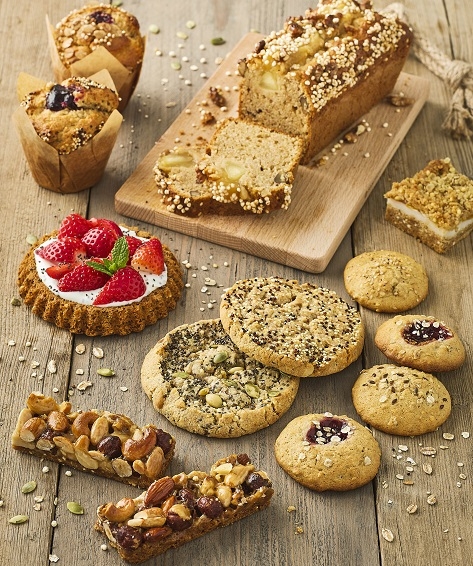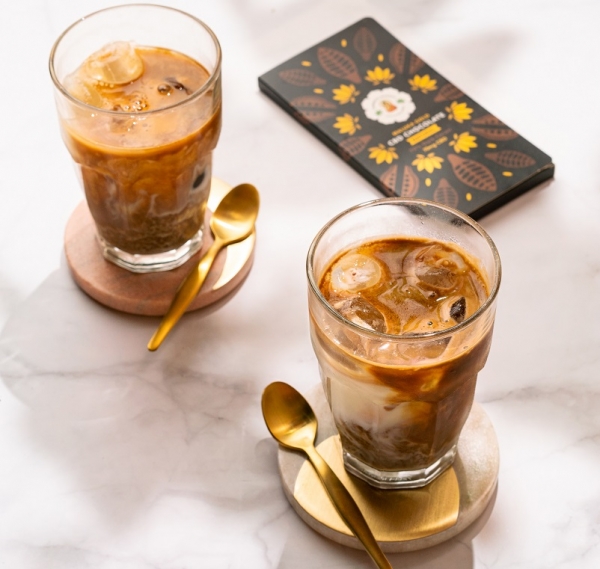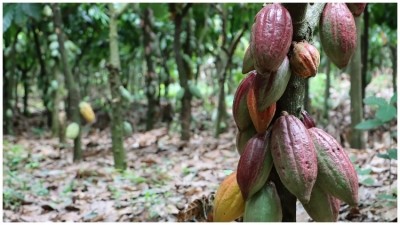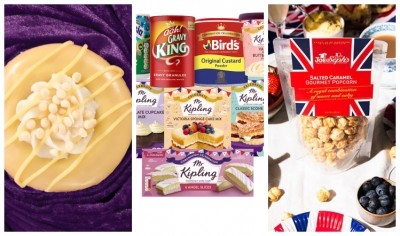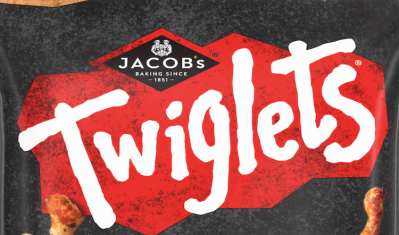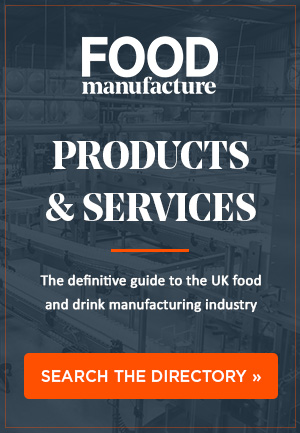Digital feature: long read
Bakery & confectionery trends 2022
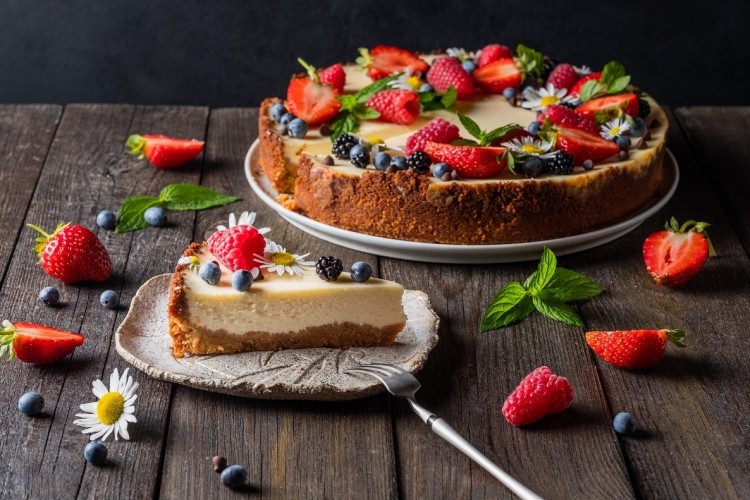
From lowering fat, salt and sugar ahead of Government regulations to improving its ethical and environmental credentials, the bakery and confectionery category has been busy.
Afforded the time and space to get creative during the pandemic, manufacturers have unleashed a wave of NPD spanning vegan variants to TikTok-inspired X-box cakes, boozy jellies and CBD-infused chocolate.
Challenging this vibrant category, however, is a major cost-of-living crisis, while manufacturers are facing their own raft of challenges.
“Brexit, COVID and now of course the war in Ukraine has given us, as well as many other bakery manufacturers, many challenges relating to supply,” says Jacqui Passmore, marketing manager UK and Ireland for Dawn Foods.
“The increased costs of raw materials, transport and labour continue to be the biggest challenges to the food industry, and this is unlikely to change in the foreseeable future.
“The additional issues of poor crops across Europe have seen a dramatic increase in the price of available fruit, and functional ingredients used in bakery have, at times, been difficult to source.”
Robert Gladstone, managing director of cereal and bakery seeds supplier Silvery Tweed, says: “Our biggest challenge is probably focused largely on logistics, in terms of extended lead times for incoming material shipping from overseas and then the additional costs incurred in finding suitable storage for higher than normal stock levels we are carrying to mitigate the impact of any potential supply issues.”
Laurence Smith, owner and managing director of Fatherson Bakery, says bakery manufacturers have become adept at good planning and 'having a backup solution, whether that is multiple supply options, a flexible workforce or continually looking at cost structures for continual improvement'.
Baker & Baker, which makes products including bread, cakes, biscuits and savoury baked goods, is addressing the challenges by working hard to secure raw material supplies and maintain constructive dialogue with its customers.
“There is significant flux in the market due to the continued recovery of foodservice following COVID-19 restrictions, changes in working patterns with more people working from home, and the cost of living crisis driving consumer choices,” says John Lindsay, European CEO.
“We may see price increases within retail and foodservice having an impact on volume sales in the months to come, although the relatively low price point of fresh bakery products gives us confidence that consumer spending in the category will remain resilient.”
Some manufacturers expect to see an impact from diminished discretionary spending. Ella McKay, co-founder of FATSO, a dark chocolate brand launched in April, says: “The fact that people have to weigh up treating themselves to a bar of chocolate or fresh loaf of bread, over being able to pay their energy bills seems bonkers in this day and age.
“People deserve to treat themselves to something yummy, but we may well see a reduction in the frequency of ‘treating-yourself’ purchase occasions.”
Gladstone at Silvery Tweed is already reporting lower brand loyalty, as people juggle their household budgets and turn to own-label and discounted ranges. “Winning customers back to brands will be a challenge if there is no discernible difference on quality factors and pricing remains attractive,” he says.
Cacao has an outsized carbon footprint and uses massive amounts of water" - Johnny Drain, founder, WNWN Foodlabs
A consumer refocus on ethical sourcing and sustainability of food products during the pandemic may wane as the cost-of-living crisis bites and price trumps all other considerations.
Nonetheless, manufacturers still face Government targets to reduce carbon emissions, and many have embraced ambitious corporate social responsibility (CSR) plans.
WNWN Foodlabs, a UK food tech company developing cacao-free chocolate for use in chocolate bars, confectionery, cookies, ice cream and pastries, cites environmental impact as its unique selling point.
“Cacao has an outsized carbon footprint and uses massive amounts of water; more per kilo than beef,” says Johnny Drain, founder. “Cacao production is also responsible for massive deforestation. Per kilo, our choc is responsible for 90% less water usage and 80% less carbon emissions.”
ChickP, maker of a chickpea protein used as a milk or egg replacement in the bakery and confectionery category, is aiming towards full sustainability from farm to fork for its plant-based ingredients.
“Chickpea is a green rainfed crop, which does not require large amounts of irrigation or fertilisation,” says chief executive officer Liat Lachish. “In addition, ChickP’s protein production requires less land, water and energy, and cumulatively results in less greenhouse gas emissions.”
Bigger operators are also making strides, with Baker & Baker developing a net zero roadmap for its entire business. It now sources 98.5% of its palm oil sustainably under Roundtable on Sustainable Palm Oil (RSPO) accreditation and the majority of its cocoa via the Rainforest Alliance. It's also a founding signatory of the Waste & Resources Action Programme (WRAP) Water Roadmap.
Dawn Foods recently launched a 2025 CSR Initiative encompassing the three pillars of People, Products and Customers. It uses RSPO-certified palm oil. Icings and other products are made with oils such as rapeseed and sunflower, and most of its cocoa powder is Rainforest Alliance-certified.
While laying claim to improved sustainability, plant-based bakery products are expanding their category presence with health as a driver.
Baker & Baker launched its first range of vegan products earlier this year, including a dark chocolate cookie, pink velvet ring doughnut and dark chocolate and fruity blueberry muffins.
“Recent research conducted by Baker & Baker highlighted that up to 23% of UK consumers are actively seeking a flexitarian diet,” says Lindsay. “There are also clear drivers for consumers switching to veganism, including environmental concerns and a desire for more natural ingredients.”
Lachish says ChickP’s products answer consumer need for plant-based, clean-label, non-allergenic and non-GMO products without compromising on taste.
Its chickpea-based milk analogue accurately recreates the flavour, texture and nutritional values of dairy milk, while ChickP protein has also performed well in plant-based egg alternative applications in confectionery such as meringue, she says.
Perhaps the biggest driver of NPD around health, however, has been manufacturers responding to impending Government regulations around the promotion of food high in fat, salt or sugar (HFSS); temporarily postponed amid the cost-of-living crisis.
Mars Wrigley, Premier Foods and Pladis are among major manufacturers launching non-HFSS variants of their popular lines.
Greet Vandeputte, category development manager for bakery at Tate & Lyle, says: “We’re increasingly seeing manufacturers reformulating their products to make them HFSS-compliant. However, when reducing or removing sugar or fats it´s not just the taste that needs to be compensated for. There are many other sensory and technical aspects sugar provides that need to be considered, such as texture, bulking and mouthfeel.
“Manufacturers can use fibres and starches to build back mouthfeel and body, which is often missing from reduced calorie baked goods or breads. Our functional Claria Clean-Label starches and Promitor Soluble Fibre, can help manufacturers to replicate the mouthfeel and texture of their products when ingredients have been removed. Additionally, they can overcome processing challenges created by removing calories from formulations. Using Promitor Soluble Fibre has added nutritional benefits as it plays an important role in improving digestive health.
“Our stevia-based natural flavourings, such as Zolesse Flavor and Natrose Flavor 2.0 can be used to modify the flavour profile of products when fats and sugar have been removed. They are labeled as ‘Natural Flavourings’. Manufacturers can also use products such as our Hamulsion Stabiliser Systems, which are customised to improve mouthfeel and texture profile across different bakery products. We are working with a number of our customers to reformulate their snack bars from ‘HFSS products’ to ‘non-HFSS’. For instance, we have worked on an apple, oat and cinnamon cake bar for an on-the-go breakfast using a combination of starches and fibres."
As a result of the HFSS regulations, Daryl Newlands, marketing manager at Finsbury Food Group, says: “Ranges are being reviewed, retail space reallocated, and new guidelines on location and promotion of cake products are changing the instore customer experience.”
However, he adds: “While consumers focus on well-being, they also want the freedom to enjoy indulgent moments with a tasty treat, no matter the occasion. If retailers are to capitalise on healthier trends and meet with consumers’ differing preferences, it's important to offer a wide variety of choice without comprising on flavour, texture or taste.”
Dawn Foods says consumer demand is rising for wholegrains, such as spelt, quinoa, and buckwheat and wholemeal flours in muffins, loaf cakes, cookies, cake bars, waffles and shortcrust pastry.
“Healthy indulgence continues to be the key buzz phrase,” says Passmore. “Consumers are increasingly seeking plant-based finished bakery products and clean, functional ingredients like added protein and fibre.
“There will be a trend towards using vegetables such as carrot or beetroot more in bakery for added sweetness as vegetables have a lower sugar content than fruit.”
However, HFSS reduction isn't the only focus of healthy NPD, says Vandeputte: "There is growing consumer demand for healthier snacks. 55% of global consumers say that they expect snacks to offer a nutritional boost, so manufacturers must keep this in mind when formulating new snacks in the coming months, whether it is reducing calories or enriching products with functional ingredients like fibre or protein.
“One key focus for consumers at the moment is gut health. The benefits of a healthy gut are wide-ranging; it supports the normal functioning of the body’s immune system and digestive system and has even been linked to having a positive impact on mood and emotional wellbeing. Fibre fortification can also contribute to lowering the risk of heart disease and Type 2 diabetes, with recent data from the UK suggesting this could be the case for as much as 72% of UK adults.”
Innovative fortification in the category also includes Cheerful Buddha which earlier this year became the first chocolate brand included on the Food Standards Agency CBD Novel Food Public List of CBD products regarded as credible applicants for authorisation.
Cheerful Buddha produces 70g bars of CBD chocolate in natural, mint and orange flavours, soon to be launched in 30g variants.
“People are more health conscious now, so foods that are indulgent and also have a healthy aspect or an additional benefit are obviously attractive,” says James Wright, co-founder. “Our chocolate bars allow the consumer to have CBD on-the-go in a tasty treat.”
Sweet Botanist, a range of Novel-Food-approved CBD gum and boiled sweets, has also been launched in the UK this year. Further additions to a burgeoning adult confectionery category have included SugarSin’s vegan Fizzy Tropical, Berry Bramble, Watermelon Mojito, Gin Fizz and Sparkling Rosé gourmet sweets.
Aside from the healthy driver, booze has been a trend in baked goods, notably Finsbury’s collaboration with Diageo to produce Gordon’s Divine Duo Cupcakes and a range of Baileys cakes.
“The Finsbury team continues to monitor the longevity of flavour trends such as Americana, US nostalgia, Great British classics and alcohol/cocktail inspired cakes as they gain popularity in the cake category across the UK,” says Newlands. “Existing and new flavour trends are ever-evolving, with flavours around boozy desserts, Speculoos and cookie and cream being very popular.”
Finsbury works with its character licensing brands to develop unique products targeting younger consumers.
“Social media platforms continue to act as huge sources of inspiration for those interested in baking and bakery products. Twitter, TikTok and Instagram can be leveraged to gain consumer insight when anticipating what formats and flavours bakers should bring to market for the summer period.
“We were able to take this approach and tap into some emerging cake formats, one of which being hyperrealism. As there was a significant uptake in people playing videogames throughout lockdown, we forged a partnership with Microsoft Xbox to create an Xbox Controller cake.”

